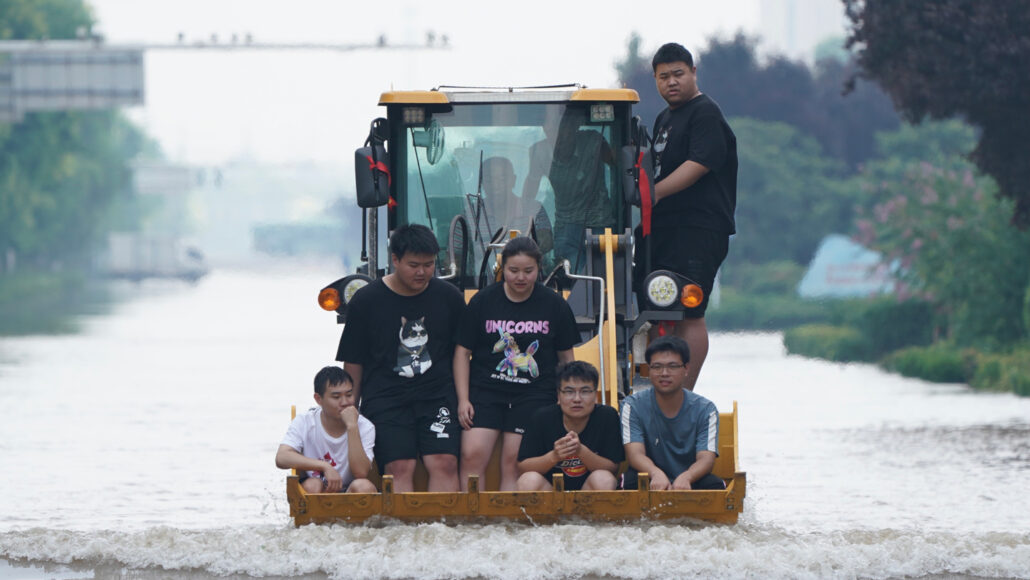Questions for ‘New UN climate report finds no time for denial or delay’

Super heavy rains earlier this summer flooded Xinxiang, in China’s Henan province. It led to dramatic rescues, like this one. A new U.N. report finds that extreme weather events across the globe have been exaggerated by human-caused climate change.
Cui Nan/China News Service via Getty Images